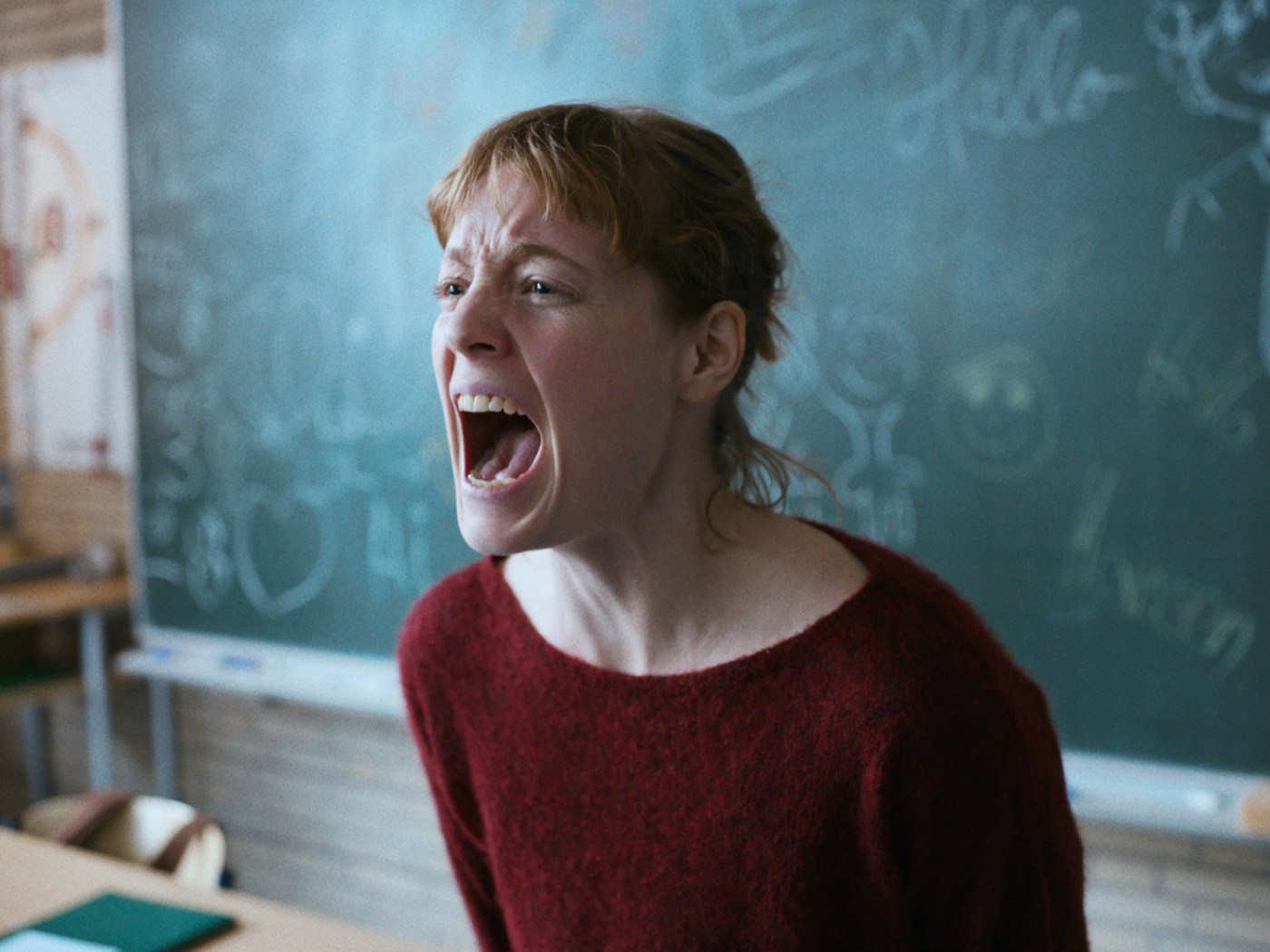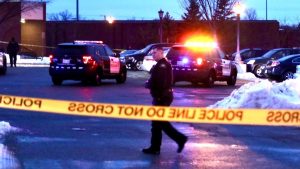
‘The Teachers’ Lounge’ review: Nerve-wracking school drama is a cinch for next week’s Oscar nominations
You can read it online, or — better — you can sweat it out in its completed form when it opens in wide release this week. Either way, the screenplay for the German thriller “The Teachers’ Lounge” is so tight it squeaks, each new development in a series of unfortunate events clicking into place like a turn of a Rubik’s Cube — which provides the film with a visual leitmotif. Not since “The Bear” has there been anything so universally described as nerve-wracking, in such admiring ways. And by minute 3, the tension’s building as if we were already reaching a dramatic climax.
Set in a secondary school (middle-school age or thereabouts) co-writer/director Ilker Çatak’s story, cowritten by Johannes Duncker, launches one of the new faculty members into a kind of psychic free fall. The math and physical education teacher, Carla Nowak, is idealistic, hardworking and, from what we see in the early classroom scenes, a smart and responsive educator, dealing with an array of temperaments, cultural backgrounds and learning dispositions. As Carla, Leonie Benesch (of “The Crown” and “Berlin Babylon”) is superb, even when the film itself is merely effectively gut-grinding.
The school has been dealing with a rash of thefts by unknown perpetrators — money stolen from wallets, mass quantities of pencils. Carla’s fellow teachers elicit the new school year’s seventh grade “student representatives” to help them identify the guilty parties. Clearly, the two children are conflicted. And their naming names, allegedly, is voluntary. It just doesn’t actually feel that way, and throughout “The Teachers’ Lounge” both students and faculty operate in a fog of deep mistrust and justifiable paranoia.
The accused is a bright outsider, a Turkish immigrant boy named Oskar (Leonard Stettnisch, astutely measured in his gradations of defiance and panic). His mother (Eva Löbau) works in the school’s administration office. When Carla becomes the latest victim of the unknown thief (she has money lifted from her wallet inside her jacket pocket), she gives in to the sneaky, twitchy school atmosphere, secretly capturing on her laptop camera what appears to be footage of the office administrator caught in the act.
Or is she? “The Teachers’ Lounge” knows better than to make things too simple, though its preferred methods of screw-tightening are simple in another way, i.e., simply relentless. It’s a panorama of bad decisions with profoundly uneasy consequences. The boy accused of stealing is exonerated early on, but only after the “zero tolerance” brigade on the faculty marches into Carla’s classroom and “asks” the students to open their wallets for inspection. Pointedly, director Çatak’s camera catches frequent glimpses of wary glances shot in Carla’s direction, especially after a disastrous parent/teacher conference, followed by the worst-timed interview with members of the school newspaper in the annals of student journalism.
Leonie Benesch, left, and Leo Stettnisch in a scene from “The Teachers’ Lounge.” (Judith Kaufmann/Sony Pictures Classics/TNS)
The movie works. It’s a discreetly pile-driving experience, almost absurdly tightly wound. Unfolding as a parable of contemporary surveillance culture and roiling European (and worldwide) tensions, Carla’s initially well-meaning actions — her reluctance to join her colleagues in pointing fingers and holding perceived threats to account, no matter what — divide the combatants between Germans who go back many generations, and German citizens recently relocated from wherever: Turkey, in the case of Ali, or Poland, in the case of Carla. “The Teachers’ Lounge” lives for the squirm, and the unintended result of everyone’s clashing ideas. Early on, when Carla instructs her students in the mathematical distinctions between “proof” and “assumption,” we’ve already seen a nervous parade of shaky character assumptions, and character assassination, in action.
It’s certainly all of a piece: The musical score by Marvin Miller, fiendishly in tune with Carla’s roiling anxiety, gets excellent mileage from plucked strings and scraping sounds. As this beleaguered idealist charges down the school hallways, steeling herself for the story’s latest rug-pull, cinematographer Judith Kaufmann’s elegant, menacing traveling shots suggest Kirk Douglas in “Paths of Glory,” or (lower down the cinematic food chain) the prowls through the trenches in the most recent “All Quiet on the Western Front.”
What the writing and filmmaking sometimes overdo, the actors mitigate beautifully. Benesch is a powerhouse of subtlety and focus, and the camera stays as close as possible to her watchful, at times disbelieving eyes. Carla’s like a character out of Henrik Ibsen’s plays — one of the valiant, principled ones, inadvertently undermining the very people she’s trying to help. “The Teachers’ Lounge” also evokes the Byzantine twists of fate, and chance, found in the everyday bureaucratic nightmares of Iran’s Asghar Farhadi (”A Separation,” “A Hero”).
It’s worth seeing, in part simply to see how it hits you: as nerve-wracking and thought-provoking, or nerve-wracking without that elusive, unresolved dimension of truth, or teasing ambiguity, or something. “I prefer discussing issues to staying silent,” Carla says at one point. It’s the healthy approach. Yet she’s surrounded by colleagues, and students, teaching their own lessons in human error, because that’s education in a nutshell: certainty meeting doubt, one assignment at a time. And the occasional glimmer of a way forward if we can see it.
“The Teachers’ Lounge” — 3 stars (out of 4)
MPA rating: PG-13 (for some strong language)
Running time: 1:34
How to watch: Premiered in theaters Jan. 19.
Michael Phillips is a Tribune critic. mjphillips@chicagotribune.com Twitter @phillipstribune
©2024 Chicago Tribune. Visit chicagotribune.com. Distributed by Tribune Content Agency, LLC.


